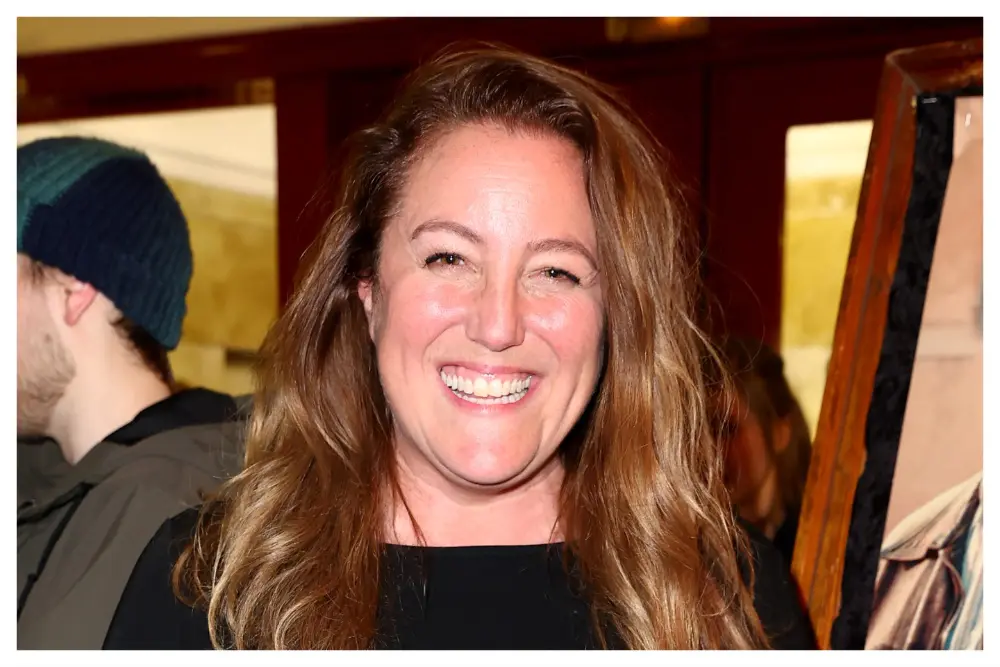The art of showrunning: Insights from a master storyteller
Unveiling the complexities of showrunning
At a recent Thessaloniki Film Festival workshop, a prominent British-American writer and showrunner delved into the multifaceted role of a showrunner and the evolving landscape of TV production. This creator, behind acclaimed series like Unorthodox, Transatlantic, and Deutschland 83, shared her expertise on various aspects critical to the success of a TV show.
“To me, showrunning is everything about how an idea manifests on screen, and there are so many moving pieces,” she began, comparing the process to “running a circus.” From music to make-up, every micro-detail demands attention and passion.
Collaboration with broadcasters and streamers
Working with major broadcasters and streamers like Netflix brings a unique set of challenges and opportunities. Our showrunner highlighted the importance of clear initial collaboration, asserting, “It really matters how you articulate the show you’re gonna make so the person who’s buying it from you signs on to the same vision.”
Similar to a publishing editor, network executives guide creators using their deep understanding of audience preferences. Their collaboration is crucial, although it can sometimes feel overwhelming due to extensive feedback.
“That person is your partner in realizing that vision,” she emphasized, “though you may feel bombarded with notes, knowing that they share your vision helps navigate the creative process.”
Debunking the algorithm myth
The era of streaming has propagated several myths, one being the omnipotence of algorithms in delivering content. While algorithms play a role, the necessity for human-driven promotion and initial visibility remains paramount.
“In the era of algorithms, a lot of people will tell you that you don’t need to promote a show and that the computer will do it for you. But I don’t think that’s entirely true.” She believes initial push and promotion are essential for the algorithm to start working effectively.
Extra content, such as behind-the-scenes documentaries, was mentioned as a valuable promotional tool. Her productions on the making of Unorthodox and Transatlantic, available on Netflix alongside their respective series, resonate with audiences who crave an insider’s perspective.
Budgeting: A writer’s hidden superpower
One of her standout points was the critical importance of understanding the economics of TV making.
“The sooner you step up to the plate of the budget questions, the sooner you are able to execute your own work.” This awareness allows for creatively stretching limited resources, hence fostering more freedom.
“If we had said we wanted to make a show in Yiddish for a huge amount of money, it would have been harder to get it made,” she cited, referring to Unorthodox, which had a focused and economically mindful approach.
Big budgets aren’t always a boon
Financial constraints often stimulate creative solutions, turning budget limitations into opportunities. Emphasizing the direct relationship between manageable budgets and creative freedom, she noted, “If you can make something for less, there is a direct correlation with how much creative freedom you can have.”
“If you’re working outside of the U.S. on creatively ambitious projects, it’s an advantage to know how to spend the money wisely. That becomes a superpower.”
Maintaining control over financial decisions helps writers retain narrative control, preventing others from making pivotal content-altering decisions.
Rethinking the writers’ room model
A significant part of her discussion addressed the misuse of writers’ rooms. Unlike the U.S., where the format is established, Europe’s nascent adaptation has room for improvement.
“As the head writer of a show, you have to be prepared to rewrite other people’s scripts. The fantasy that other people will deliver fully usable scripts expects too much from episode writers. The show’s voice should primarily come from the head writer.”
In Europe, writers’ rooms sometimes function more as brainstorming hubs without clear direction. Highlighting the need for a leading vision, she says, “A successful show requires someone with a clear vision driving the process from start to finish.”
Final reflections
Reflecting on these insights offers invaluable lessons for aspiring showrunners and seasoned professionals alike. With her extensive experience, she underscores the necessity of passion, meticulous planning, and collaboration in the art of storytelling.
Stay tuned for more expert insights and join the conversation by sharing this article on your preferred social media platform. Follow us for further updates and industry trends.

 Italian
Italian







